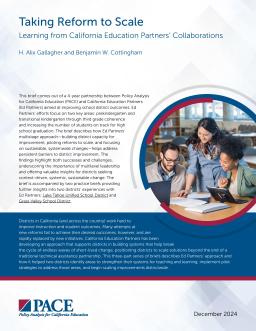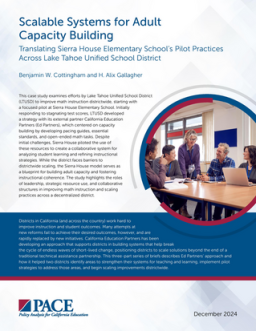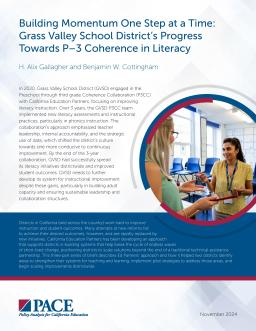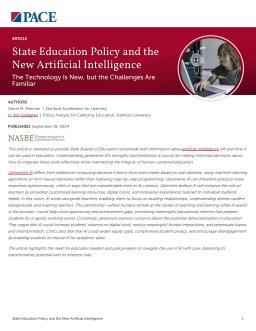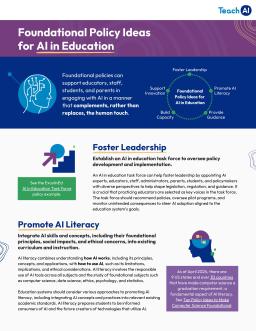Summary
Summary
Summary
Summary
Optimists believe AI will partner with teachers to provide customized learning resources, digital tutors, and innovative experiences tailored to individual students’ needs. Pessimists express concerns about the potential dehumanization of education, arguing that AI could increase students' reliance on digital tools, reduce meaningful human interactions, and perpetuate biases and misinformation. In this article, the authors highlight the need for education leaders and policymakers to navigate the use of AI with care, balancing its transformative potential with its inherent risks.
Summary
Within the TeachAI Policy Workgroup, PACE has facilitated the development of AI policy informational briefs aimed at ensuring the effective, safe, and responsible integration of AI in education. These briefs offer guidance to education leaders and policymakers, emphasizing the importance of crafting policies that prioritize teaching and learning. The briefs provide insights derived from current research and landscape analysis of AI use in TK–12 educational settings, addressing common questions and centering around five guiding principles for developing responsible AI policies in education.
